From Bishop Aboyade to Chicago: Inspiring Story of Esosa Omozuyi, Chicago Booth MBA Candidate
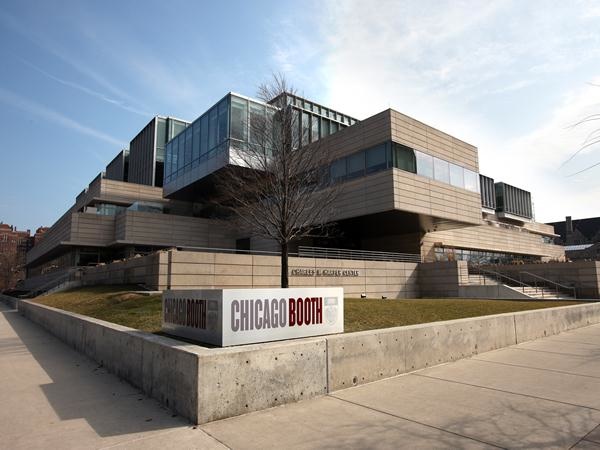
Editor’s Note: Austine Archibong is one of the oldest followers and contributors to JarusHub, Nigeria’s most authoritative education and career resources platform. He had been a follower and contributor to JarusHub from his undergraduate days in UNILORIN in 2013. Now with one of the Big 4 professional services firms, he recently resumes his contribution to JarusHub.
with
Austine Archibong
This is the first in an interview series with young professionals doing their masters in top schools in the US, UK, France and Spain. We’d talk their application process, considerations, funding, GRE/GMAT, internships and post-school activities.
We are starting the series with Esosa Omozuyi, who is currently doing his MBA in Chicago Booth, one of the top 10 Business Schools in the World, according to several ratings.
Hello Esosa, It’s a pleasure to meet you. Do you want to introduce yourself?
My name is Esosa, and I am an MBA student at the University of Chicago Booth School of Business. I graduated with a second-class upper degree from the University of Lagos in 2015 and shortly after I spent 18 months working in a mid-sized accounting firm in Lagos. On January 2018, I joined the Energy and Natural Resources unit of KPMG Nigeria’s Audit division. In that role, I was majorly tasked with leading audit engagement teams for oil and gas clients and reporting to the engagement manager. I am also a member of the ACCA and ICAN (not yet inducted).
You did Accounting at Unilag, how was your experience there, what grade did you finish with, and how did your experience (on and off the classroom) prepare you for where you are now and where you are headed?
My experience at Unilag was quite ordinary. Upon gaining admission, I was a but overwhelmed by the number of brilliant students at the school and in my first year, I was poor academically. I had a Damascene moment in the second semester of my second year and my grades dramatically improved – this improvement lasted till the end of my final year. I eventually graduated with a 4.3/5 CGPA.
Unilag did not really prepare me for the realities and practicalities of the corporate world but the school was instrumental in the development of my confidence, and the determination that within reason, I can achieve most of what I set my mind to.
Please share your ICAN and ACCA story.
I started ACCA when I was in my second year in the University. There was an ASUU strike in 2012 and my late father (God bless his memory) was very intentional in his commitment to see that all his children were well educated. Despite my initial reservations, he personally arranged with a tutorial center for me to register for ACCA and take the first three papers. At that point, I was already registered, and I had no choice but to write the exams. This singular act by my father was a unique turning point as it coincided with the Damascene moment I mentioned earlier. I returned from the ASUU strike a different student with a renewed commitment to my academics.
My journey with ACCA was a very tasking but pleasant journey. It was tasking because I was combining the ACCA with my undergraduate degree, but it was pleasant because I passed all the papers in the first sitting.
I started ICAN shortly after joining KPMG. My primary reason for writing ICAN was that ICAN members were on a different salary scale from non-ICAN member at the firm. With my ACCA certification and accounting degree, I only had to write two ICAN papers and it was a very smooth ride.
Accounting Hub helped your leap to KPMG and beyond?
Without a doubt, Accounting Hub was very instrumental in my career. I joined Accounting Hub 7 months after leaving school. I had no knowledge of any accounting software or even Microsoft Excel, but I had a desire to learn and ask questions.
The start-up culture at Accounting Hub gave me the freedom to take on many roles and learn very fast. Because I had a strong knowledge of theoretical accounting principles, I was promoted within three months of joining the firm. That further helped build my confidence, and it was my first taste of the reward that comes in when one puts in the work.
How did you get into KPMG and how was your experience?
I have always been a child of unexpected luck. In my final year at Unilag, I took a 100-level course because I wanted to boost my CGPA. That result, including all my other results were posted on the notice board and I was confident I was done with school. However, to my surprise, the list for NYSC came out and my name was not there. I subsequently discovered that even though I had an A in the course, for whatever reason, the result was not uploaded online by the lecturer. This was the first time I had an issue with any result throughout my four years at the University and at the time it felt very consequential.
However, I am very confident that without that obstacle, I would not have applied to Accounting Hub and without Accounting Hub, I probably will not have gotten into KPMG.
My time at KPMG was great. I worked with some of the biggest clients in Nigeria. I met some of the brightest people I had ever met but because of my prior experience, I was not fazed, and I was convinced that I belonged there.
KPMG is a wonderful learning experience. The kind of experience that one can garner within a short period of time is almost incomparable. In my third year, I was having meetings with CFOs of Companies with revenue of over 1 billion Naira.
Was KPMG ‘a difficult experience’ as some alumni have described?
It is difficult for me to explain this succinctly. It is not a toxic environment, but it can be a difficult place to be. KPMG, like other big 4 firms, has a pyramid structure. As you progress and go up the food chain, there are fewer slots available, and people must fall off.
There are a lot of things to get done and you are expected to deliver on those things, one way or another. A lot of people regularly work 70+ hour weeks. As a team member, you often have clients and senior team members calling or emailing you on the weekend. Clients are paying big money and they expect some level of flexibility.
It is up to each person to chart their path. People who like such an environment stay there for as long as they like what they do. Others who want different things in their careers leave after some years.
What was the most challenging part of Audit for you?
Very simple. The most challenging things were the long hours and client demands.
Did you crush GMAT or how did you get into Booth? It’s huge Esosa! Did you get a scholarship?
I wrote the GRE. I did not crush it, but I got a pretty good score, after 3 attempts, and this helped me get solid scholarship from Booth.
I think the key things that enabled me to get into Booth were my GRE score, the quality of my experience and how I was able to document that experience. Schools are looking for people who clearly know what they want, how their experience connects with their plans and how the school can help them act as a bridge from where they currently are to where they plan to get to in the future.
Schools like Booth where there is a lot of flexibility and students can chart their paths, are also looking to understand your decision-making process and why you have made the decisions you have made.
Kindly share your MBA story and how’s it going, considering the pandemic.
I do not think I can capture the entire experience in words, but it’s been a great experience so far. I have met truly amazing people who are doing great things and pushing me to also do same. I have also taken courses taught by professors who are very brilliant and have significant experience and connections in their fields.
The pandemic has made the experience more challenging as it is more difficult to get that full experience that one would expect from business school, but there have also been some advantages, for example, recruiting was virtual, and I did not have to travel to recruiters’ offices for interviews.
The second year will not be virtual, and I am really looking forward to that experience.
With regards to funding, visa, GMAT, what can you share to help young Nigerians sceptical of seeking masters abroad, specifically the United States?
An average Nigerian is hesitant to take on any form of debt to attend graduate school. For people who are doing Masters/PhDs in STEM, there is a good chance of getting full scholarship and even stipends for living allowance. For an MBA, however, you are doing the degree to improve your network, develop your business skills and significantly improve your earning capacity – it is difficult to see schools who are willing to give all students full scholarships to do this.
For me, the best way to think about the whole scholarship is to put your best foot forward in your application materials and apply to more than one school such that you can leverage the scholarship given by School A to get more funding from School B. At the end of the day, the return on investment from an MBA is tremendous and even if you do not get any form of scholarship and must pay the full ~$200K with loans, depending on your ability to save, you will most likely be able to pay off the entire loan in less than 3 years of working. (N.B: This is unique to the MBA, I cannot really speak to an MSc Finance etc.)
How’s the Amazon internship going?
It’s been a great experience so far. I am working on a very interesting project which I cannot disclose, but I am quite excited.
What’s next for you, after school?
After school, I intend to work in Corporate America for a couple of years and then start a fintech venture in Africa.
Final word?
Leaving Nigeria is not for everybody but if it is for you, then do not hesitate. Understand the route you want to take, speak with people who have done it/ are currently doing it, and then START. You will never have all the information you need prior to starting. The stars and moon will never align perfectly for you to do what you want to do. It is surely not an easy journey, as with everything that is worthwhile, but it can be rewarding.
It is also good to note that coming to the U.S. for graduate studies is not an automatic ticket to a great life. There is still a lot of work to be done after gaining admission. Carpe Diem!
End.
Established in March 2013, JarusHub is a Nigerian information hub with focus on career and management. It is rated Nigeria's most authoritative destination for online career resources. It parades an array of Nigerian professionals who share their career experiences with a view to bridging career information gap and mentoring a generation to success. Whether you're a student, a recent graduate or an established professional, or even an executive, you will always find something to learn on JarusHub. All enquiries to jarushub@gmail.com or 0808 540 4500. Facebook: www.facebook.com/jarushub; Twitter: @jarushub or @mcjarus.
My First Year at Harvard Business School
September 8, 2021
2 comments
Let us have your say by leaving a comment belowCancel reply
Recommended For You
-
COMPANY REVIEW: ALUKO & OYEBODE
March 10, 2018 -
Advice on Accounting Career: ICAN, ACCA and ICAEW
October 9, 2017

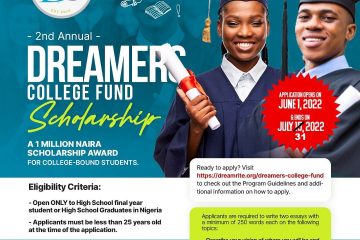
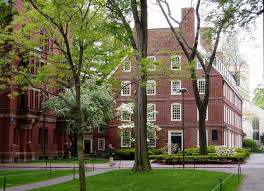
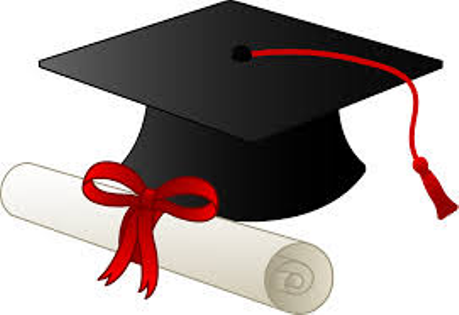
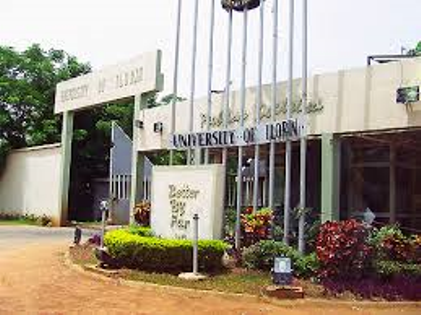

A new CEO with a different strategy.
I have D7 in literature D7 in economics c4 in English c4 in biology b3 in marketing b3 in Civic education, which course can I study